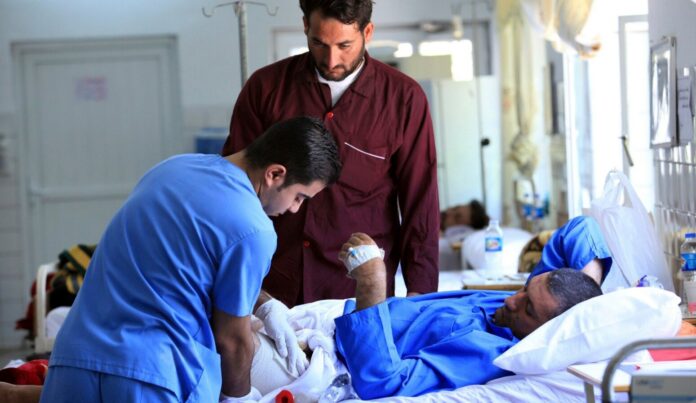Dr. Dargham Al-ajoudi-administrative deputy governor of Basra
Introduction
Basra is an important part of Iraq, what it suffers from gaps in the health sector is a reflection of the problems that exist in Iraq due to the delay of the Iraqi health system to catch up with what the world has reached in the level of Health Services.
In order to prepare a promising plan for the development of the health sector in Basra, we must first determine the size of the gaps that separate the reality of the current health services, the required health services, and convincing for citizens, or in other words, the gap between our reality and our ambitions.
Therefore, this report was prepared based on the data of the planning department at the Basra health department, the data of the Basra Investment Authority, the data of the buildings division in the project management department at the Basra governorate court, and the report (the health situation in Iraq … Challenges and priorities of work) for the year 2019, the data of the evacuation and medical recruitment program for Basra governorate, as well as frequent meetings with the director general of the Basra health department, managers of health institutions, as well as field visits to health institutions and frequent meetings with health sector workers and citizens who receive health services, and my work as a specialist doctor in the health sector for more than two decades, as well as by virtue of my position as an administrative deputy to the governor.
A Brief History
The health sector in Iraq has been suffering from major chronic problems for four decades when the state’s support for the health sector declined in the Iran-Iraq War, and the subsequent fatal blow received by the health sector in thirteen years of the comprehensive blockade exhausted the health sector and caused it a huge decline that we are still suffering from today.
Iraq has been cut off from the world since 1980, when doctors and other citizens were banned from traveling abroad to bring knowledge and access to modern technology and techniques.
Unfortunately, after the occupation of Iraq in 2003 and the subsequent civil war and an unprecedented terrorist invasion, and the destabilization of security and politics for more than a decade and a half, which caused the burning and vandalism of most hospitals and health institutions, targeting Doctors With Murder and displacement, the Iraqi health sector remained reeling under these escalating crises and wars for forty years without a supporter or a particular, at the same time the world was advancing rapidly, and developing tremendously.
Data display
The data on public health indicators in Basra are the same as in the whole of Iraq, the death rate of children under the age of five is more than (3%), and the percentage of people with hypertension among the population is (30%), people with diabetes (14%), and people with obesity (30%) (Alwan, 2019), and Iraq is the highest globally in the percentage of deaths due to accidents (20% of deaths) (risk factors Report, 2018).
The population of Basra governorate is (3,142,449) according to the Ministry of planning, and these figures are inaccurate and rejected by the local government, which estimates the population of Basra governorate at five million people according to the statistics of local councils and their data.










